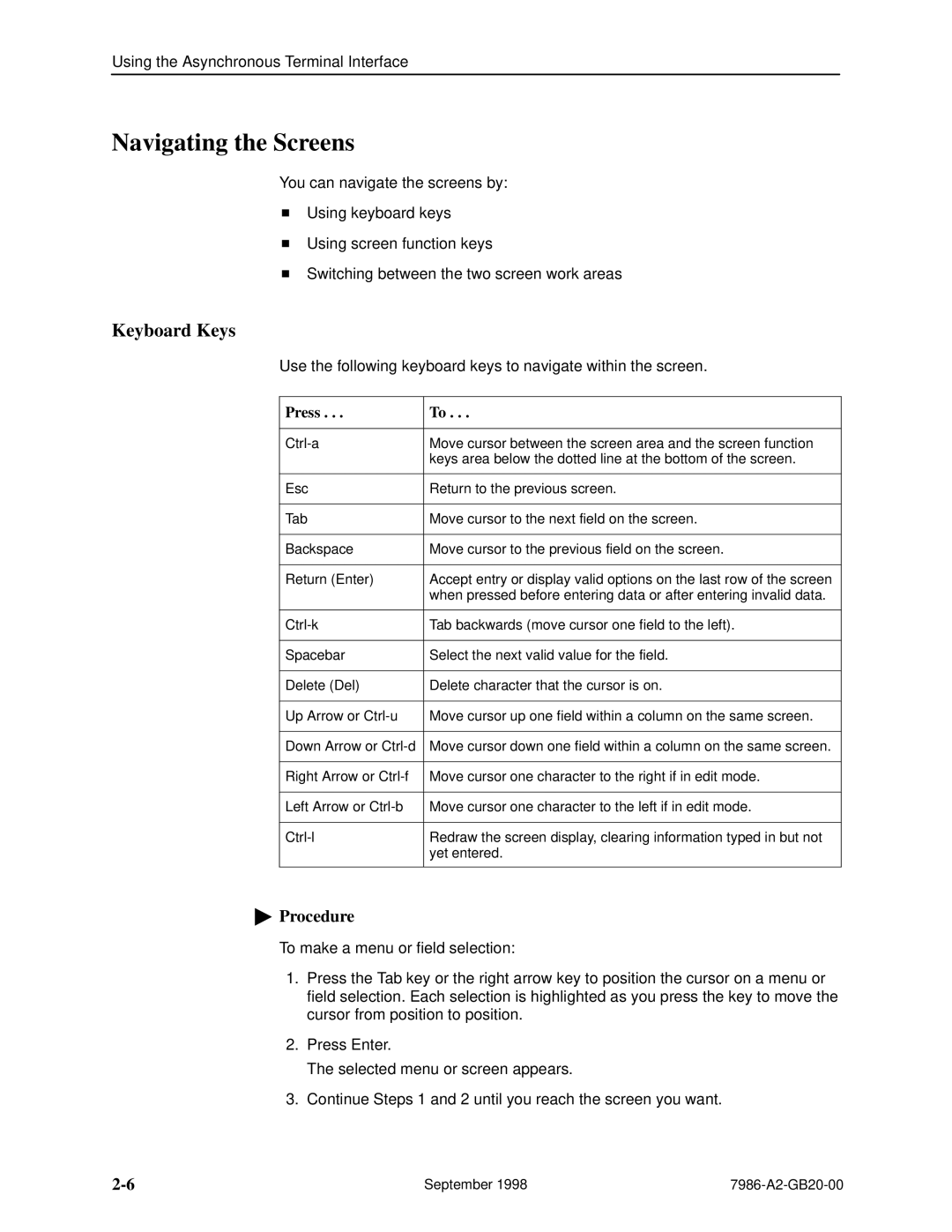Using the Asynchronous Terminal Interface
Navigating the Screens
You can navigate the screens by:
HUsing keyboard keys
HUsing screen function keys
HSwitching between the two screen work areas
Keyboard Keys
Use the following keyboard keys to navigate within the screen.
Press . . . | To . . . |
|
|
Move cursor between the screen area and the screen function | |
| keys area below the dotted line at the bottom of the screen. |
|
|
Esc | Return to the previous screen. |
|
|
Tab | Move cursor to the next field on the screen. |
|
|
Backspace | Move cursor to the previous field on the screen. |
|
|
Return (Enter) | Accept entry or display valid options on the last row of the screen |
| when pressed before entering data or after entering invalid data. |
|
|
Tab backwards (move cursor one field to the left). | |
|
|
Spacebar | Select the next valid value for the field. |
|
|
Delete (Del) | Delete character that the cursor is on. |
|
|
Up Arrow or | Move cursor up one field within a column on the same screen. |
|
|
Down Arrow or | Move cursor down one field within a column on the same screen. |
|
|
Right Arrow or | Move cursor one character to the right if in edit mode. |
|
|
Left Arrow or | Move cursor one character to the left if in edit mode. |
|
|
Redraw the screen display, clearing information typed in but not | |
| yet entered. |
|
|
"Procedure
To make a menu or field selection:
1.Press the Tab key or the right arrow key to position the cursor on a menu or field selection. Each selection is highlighted as you press the key to move the cursor from position to position.
2.Press Enter.
The selected menu or screen appears.
3.Continue Steps 1 and 2 until you reach the screen you want.
September 1998 |
